
Front_Office_Operations
.pdf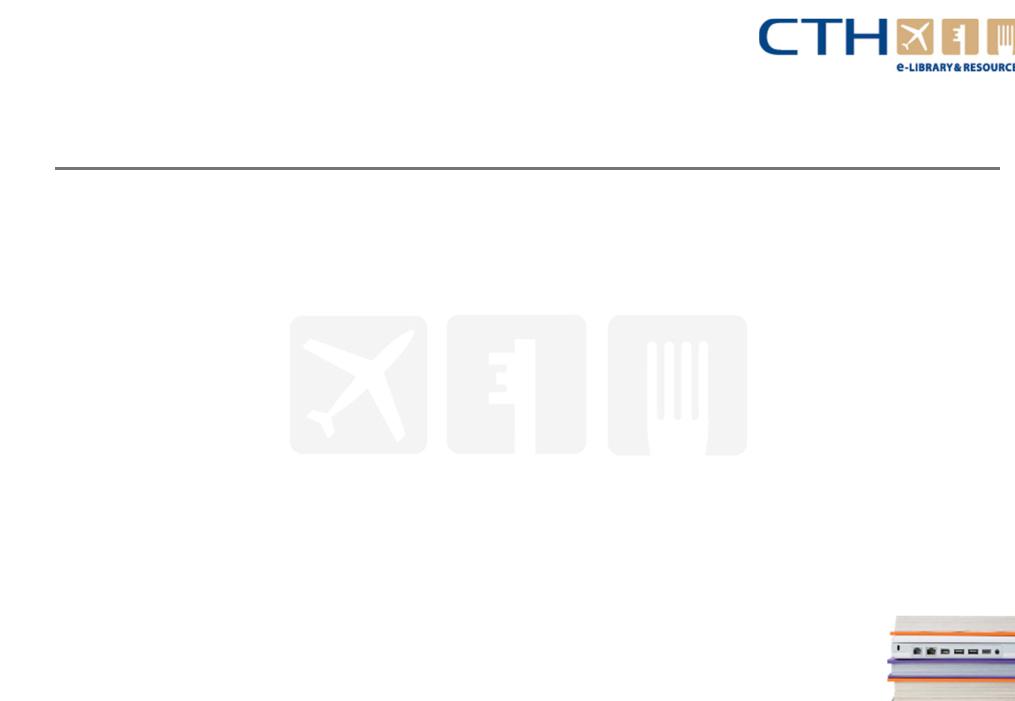
Chapter 2 – Reservation procedure
Group and conference reservation
6.1 Group reservations
Group reservations, whether of tourist groups or corporate groups, are often very attractive because they represent 'volume' business for the hotel.
●A sizeable number of rooms may be booked, increasing occupancy.
●Groups are often booked in well in advance, which helps the hotel manage its occupancy, and gives it a measure of security.
●Groups may be booked on the same fiat room rate - which may increase the average room rate.
●Groups tend to be booked in and paid for in single transactions conducted by the tour organiser, operator or agent (rather than requiring individual transactions for each member of the group), which cuts down on administrative time, effort and cost.
●Groups will tend to have uniform arrangements: the hotel can anticipate their arrival, departure and having meals at broadly the same time.
●Groups tend to be accompanied by a leader or organiser, who can liaise and help organise some of the administrative tasks of the guest cycle.
●Groups generate added revenue through their spending in other departments of the hotel (e.g.. in the restaurant).
●Groups often offer the potential for repeat business, through the company, travel agent or
tour operator.
www.cthresources.com |
Page 131 |
|
www.cthawards.com |

Chapter 2 – Reservation procedure
Group and conference reservation
6.1 Group reservations continued…. Group package negotiation
A group or conference organiser is often in a strong bargaining position, compared to an individual guest, because of the volume of business (and potential repeat business) they represent. Groups are therefore generally offered a discounted rate, by negotiation with the group organiser.
Obviously, the group organiser may be aiming for rooms in a peak period at the lowest possible rate while the hotel will be trying to increase occupancy in slack periods at the highest possible rate. This is what negotiation is for - to find an agreed solution that is acceptable to both parties.
If the group requirement is for a slack period when the hotel would otherwise struggle to fill the rooms, the hotel will be prepared to offer lower terms to get the business. How low could it go? It will need to make a profit on the rooms, so the lowest possible price will be what it costs the hotel to let the room: basically, the cost of any extra labour and consumables (e.g.. laundry costs, stationery, and soap used, electricity costs) which would not be incurred if the room was empty. (This is called ‘marginal cost’ of letting the room). However, the hotel also has to bear in mind (a) the need to make a profit, and (b) the ‘opportunity cost’ of letting a room at a lower rate, when it might be able to let it at a higher rate.
www.cthresources.com |
Page 132 |
|
www.cthawards.com |

Chapter 2 – Reservation procedure
Group and conference reservation
6.1 Group reservations continued…. Group package negotiation continued …
If the group requirement is for a peak period when the hotel knows it can fill the rooms with customers who will pay the full rack rate, the hotel will be in a strong bargaining positioning to demand a higher group rate. However, it will also bear in mind the attractiveness of the group's business, and may accept a lesser amount for one peak period booking in order to 'win‘ repeat or volume bookings for slacker periods. The level of discount offered may be attached to the number of rooms booked over a year or in 'off-peak' periods. It may also take into account the total value of the group's business, including expenditure on mea s and other extras: the hotel may try to 'lock in' extra revenue by negotiating an inclusive package rate to Include discounted table d'hote or set price meals.
www.cthresources.com |
Page 133 |
|
www.cthawards.com |
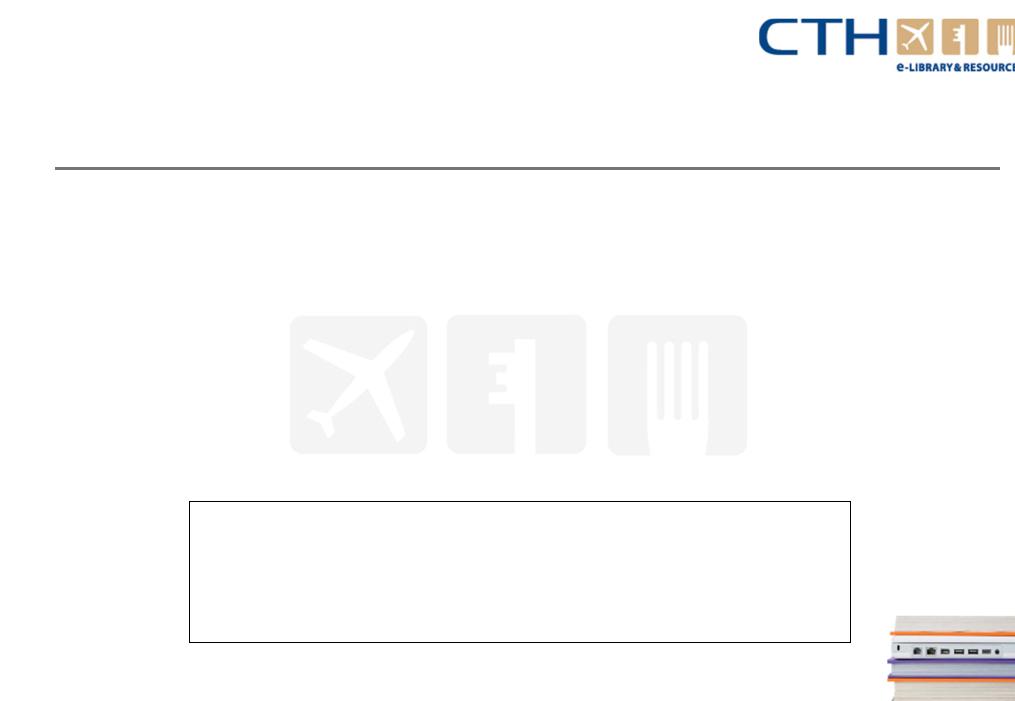
Chapter 2 – Reservation procedure
Group and conference reservation
6.1 Group reservations continued….
Group booking procedures
Group bookings require special attention and protocols for several reasons.
●Cancellation or 'no show' by a group represents a serious loss for the hotel. Reservation clerks must therefore take even stricter steps: to check the reliability and credit-worthiness of the group organiser or agency; to establish firm contracts with the organisers, enabling the hotel to gain compensation from losses suffered as a result of breach of contract; to impose strict cancellation periods and penalties; to 'chase' unconfirmed bookings; and to keep records of unreliable organisers (who may be blacklisted, or subject to payment guarantees).
Cancellation deadlines are generally set in stages. For example:
-Cancellation more than 90 days prior to arrival may incur no charge or penalty
-Cancellation less than 60 days before arrival may incur a charge of 25% of the bill
-Cancellation less than 30 days before arrival may incur a charge of 50% of the bill
-Cancellation less than 14 days before arrival may incur a charge of 75% of the bill
-Cancellation less than 7 days before arrival may require full payment.
www.cthresources.com |
Page 134 |
|
www.cthawards.com |
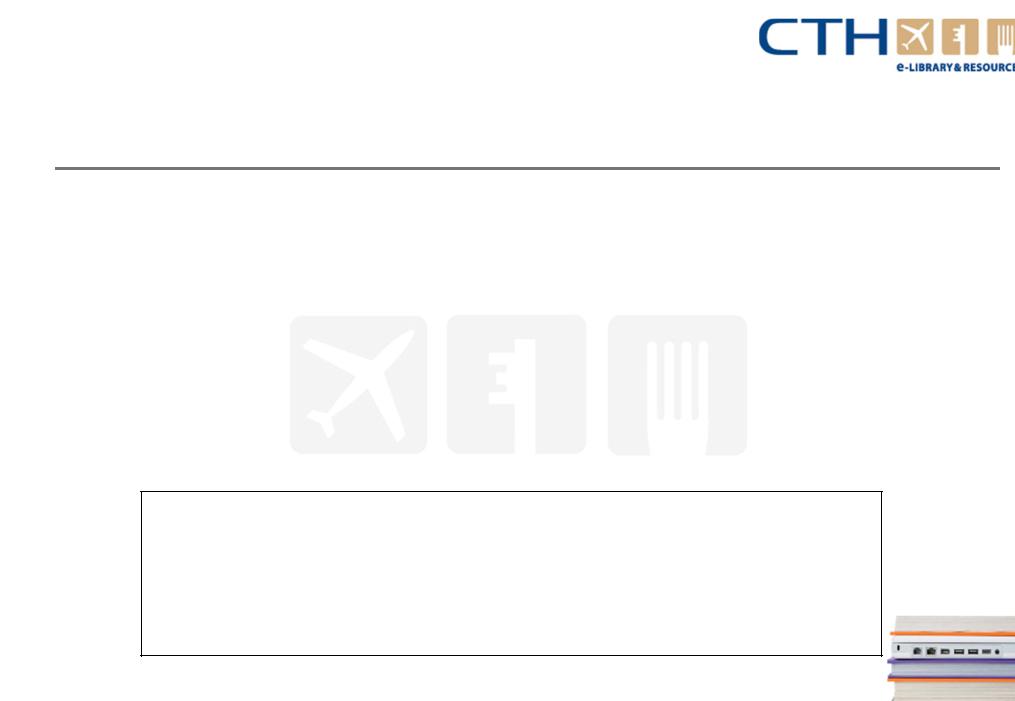
Chapter 2 – Reservation procedure
Group and conference reservation
6.1 Group reservations continued….
Group booking procedures continued…
Group bookings require special attention and protocols for several reasons.
●The long lead time for booking makes it difficult for group organisers to forecast accurately in advance exactly how many rooms they will need: they may reserve too many, resulting in last minute cancellations or non-arrivals. (The hotel should include this likelihood in its planned overbooking.) The hotel should request more accurate updates from the organiser or agency as the arrival date approaches, with final confirmed 'rooming list' supplied seven days before arrival.
The rooming list should include:
-Names of group members
-Types of rooms requested
-The organiser's allocation of room shares, single occupancy requests, adjacent room requests etc: if the hotel has reserved a specific block of rooms, the organiser may pre-allocate them
-Special food requirements/allergies (if meals are Included in The package)
-Nationalities and passport numbers of guests (if available) to facilitate pre-registration.
www.cthresources.com |
Page 135 |
|
www.cthawards.com |
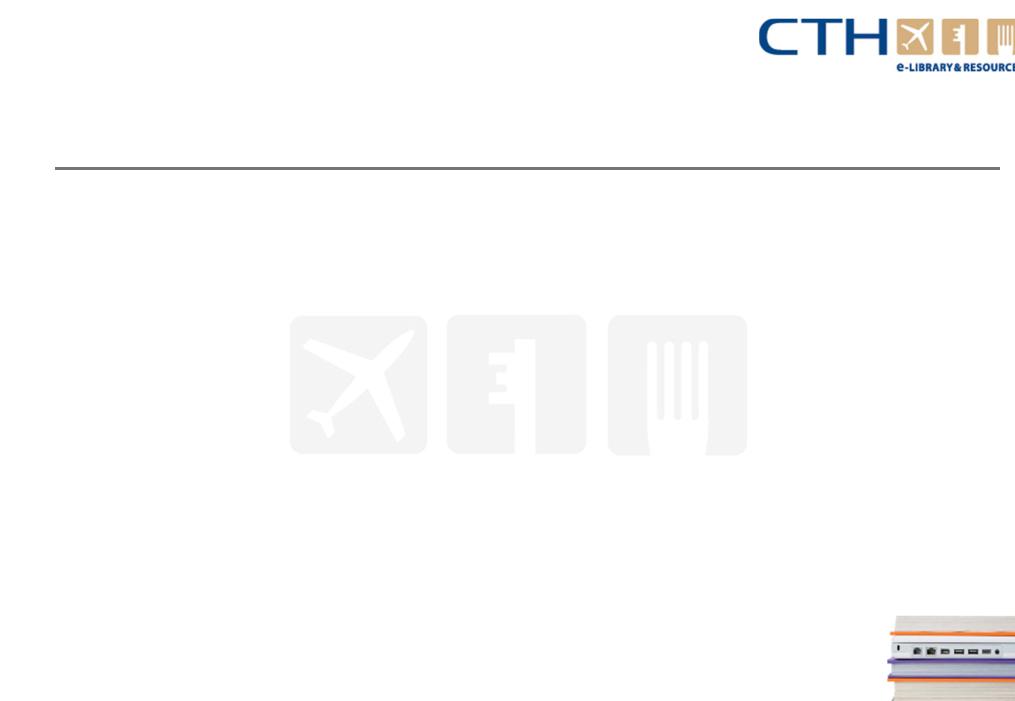
Chapter 2 – Reservation procedure
Group and conference reservation
6.1 Group reservations continued….
Group booking procedures continued…
Group bookings require special attention and protocols for several reasons.
The group may be accompanied by a courier or tour leader, and perhaps also a coach driver. These representatives may be accommodated free or at reduced rates, especially if they are co-opted to help with group check-ins, payments, check-outs and so on. Any such arrangements will have to be clearly specified in advance.
Other departments of the hotel need to be notified well in advance of group reservations, to ensure that preparations can be made. Housekeeping may need extra staff or different rosters to ensure that all rooms are available at the same time; porters must be available to distribute luggage; the restaurant will need to know about group meals; and so on.
Group reservation forms is shown in Figure 2.10.
www.cthresources.com |
Page 136 |
|
www.cthawards.com |
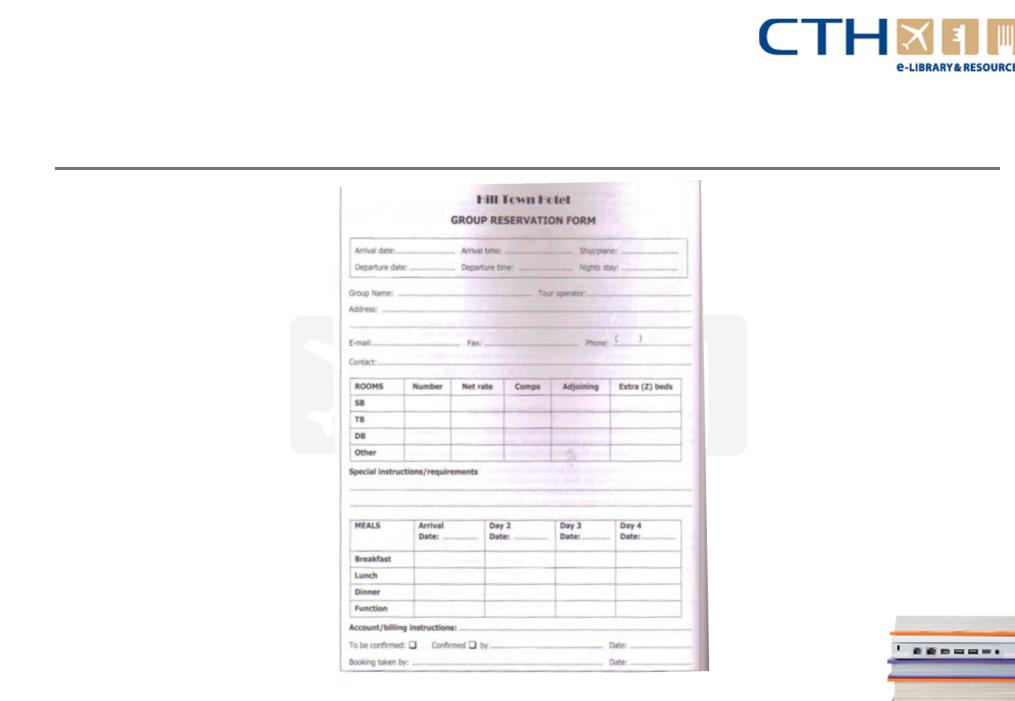
Chapter 2 – Reservation procedure
Group and conference reservation
Figure 2.10: Group
reservation form
www.cthresources.com |
Page 137 |
|
www.cthawards.com |
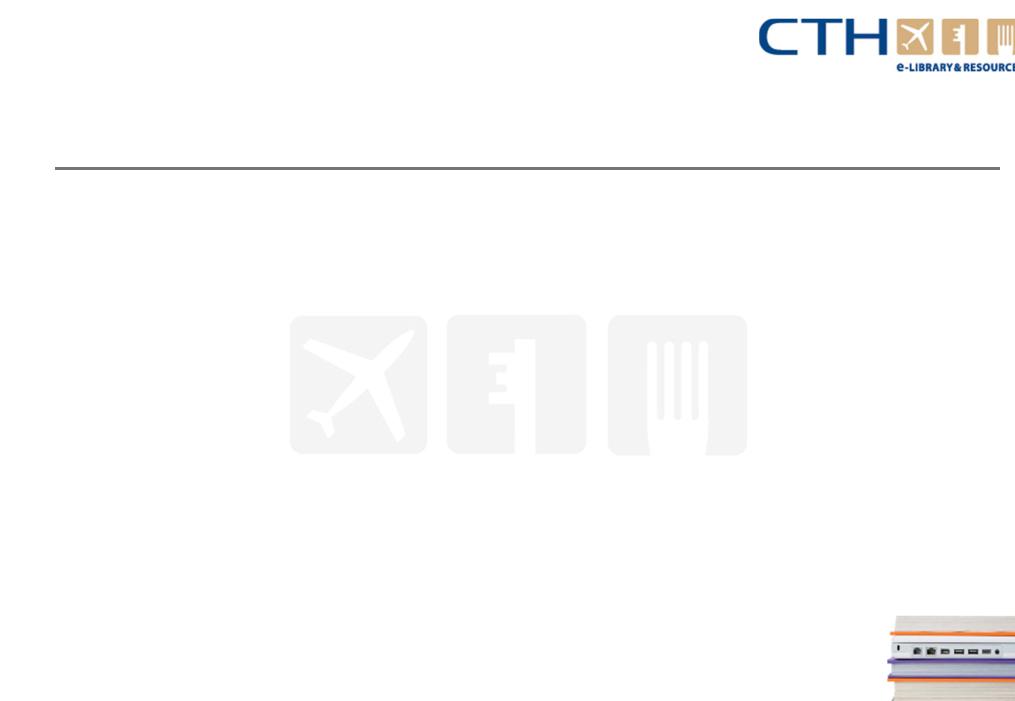
Chapter 2 – Reservation procedure
Group and conference reservation
6.2 Conference accommodation bookings
Hotels with meetings and entertainment rooms offer a convenient venue for conferences and conventions, seminars and workshops of various kinds, especially if they extend over several days or involve participants from different regions or countries, who require overnight accommodation.
Conference organisers may be focused primarily on the meetings and conference facilities of the hotel, they may, or may not, make accommodation bookings on behalf of delegates. Hotels offering conference facilities will probably have specialist staff to handle the requirements and liaise with conference organisers as the event is planned and prepared.
Conferences and the handling procedures are similar to large group bookings. However, unlike group tours, conference delegates may arrive (and depart) independently, at different times. They will, therefore, be checked and may also be billed individually (depending on whether accommodation is included in the conference package price). They may make a reservation to stay on as independent guests after the conference, either at the time of booking for the conference or by extending their stay during the conference. Such extensions may require the juggling of room allocations, and separate billing - perhaps at a higher rate than the discounted rate negotiated for the conference (to
reflect the fact that the room could be let at a higher rate to other incoming guests).
www.cthresources.com |
Page 138 |
|
www.cthawards.com |
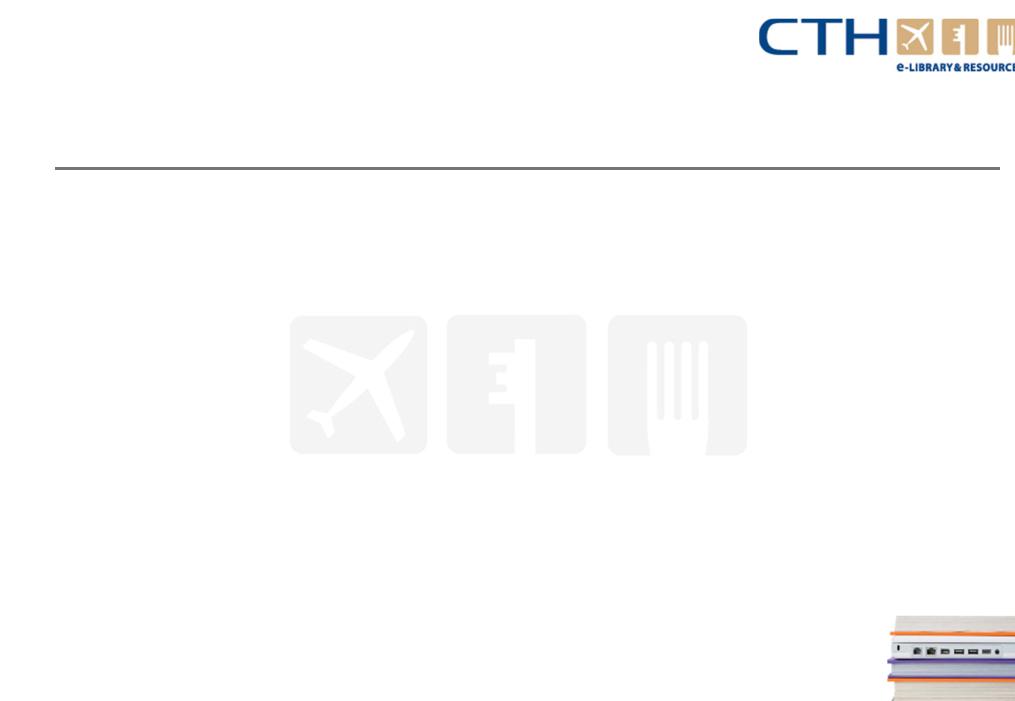
Chapter 2 – Reservation procedure
Group and conference reservation
6.2 Conference accommodation bookings continued…
Above mentioned issues must be considered.
In addition, a conference may involve the hotel in providing a wider range of facilities and services, and front office staff may need to give thought to:
●The booking of bedrooms for delegates plus accommodation for the conference itself: a main conference or seminar room; plus 'break-away' meeting or discussion rooms; plus a welcome or registration area; plus possibly banqueting or other rooms for social events attached to the conference.
●The reservation and/or hiring of presentation equipment (e.g.. microphones, data projectors, speaker's lectern), furniture (chairs and tables), signage (announcing the time and location of conference sessions for delegates) and back-up services (e.g.. e-mail, fax, telephone, photocopying and so on). These requirements will have to be discussed well in advance with the conference organisers, and detailed checklists drawn up and communicated to guest services and other relevant departments.
www.cthresources.com |
Page 139 |
|
www.cthawards.com |
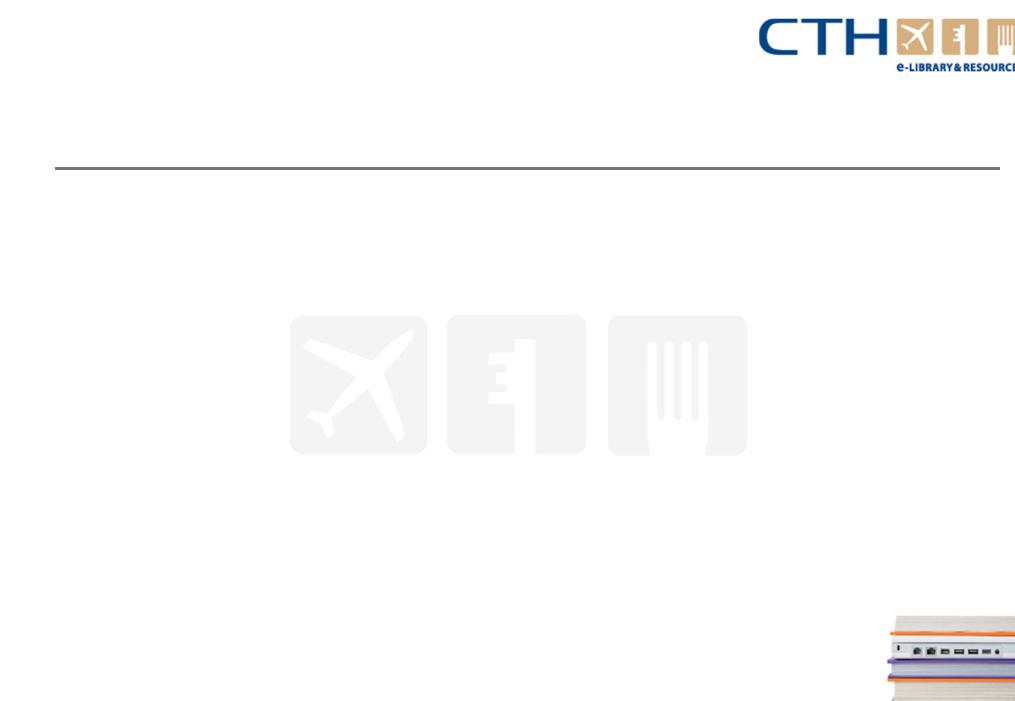
Chapter 2 – Reservation procedure
Group and conference reservation
6.2 Conference accommodation bookings continued…
●Food and beverage requirements: in addition to any formal catered events (which will need to be arranged by liaison with the banqueting manager), the conference organisers may request refreshment facilities (e.g.. bottled water, tea/coffee making facilities) and/or scheduled morning or afternoon tea, to be arranged with the food and beverage department.
●VIP and partner arrangements: conference organisers may delegate or share with the hotel the tasks of meeting and welcoming important guest speakers, and/or planning a programme of activities for the partners and children of delegates. These responsibilities (and appropriate charges) need to be carefully negotiated beforehand.
The events management or conference co-ordinator of the hotel will have to be suitably equipped to provide information packs containing:
●Details of the hotel location and transport accessibility
●Descriptions (and perhaps photos) of conference and banqueting facilities
www.cthresources.com |
Page 140 |
|
www.cthawards.com |
